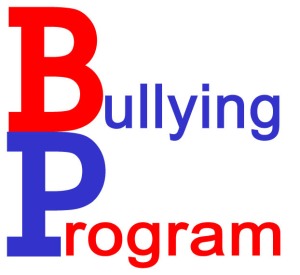 So your 10-year old son, Hammoud, comes home from school with a devastated look on his face. You ask what is going on, but he won’t tell you anything. Finally that night, just before he falls asleep he tells you that something happened at school today. Another boy in his class said some things that really sunk his confidence. He had been getting along great with the others boys in the class, and now one kid is making life miserable for him. Then it comes out. This isn’t the first time. Jason has been bullying Hammoud ever since September.
So your 10-year old son, Hammoud, comes home from school with a devastated look on his face. You ask what is going on, but he won’t tell you anything. Finally that night, just before he falls asleep he tells you that something happened at school today. Another boy in his class said some things that really sunk his confidence. He had been getting along great with the others boys in the class, and now one kid is making life miserable for him. Then it comes out. This isn’t the first time. Jason has been bullying Hammoud ever since September.
As a parent you start asking yourself questions.
* Why didn’t I know about this?
* Why didn’t I see it coming?
* Doesn’t Hammoud care enough about me to share something like this with me?
* Are my parenting skills lacking?
Then my thoughts turn to the school. “What is being done to prevent bullying? Do they have policies in place?” Based on the amount of media coverage of bullying, I think to myself, “the school must have an anti-bullying program which is on-going.”
I try to encourage Hammoud the best I can and the next day I set up an appointment with the school vice-principal. After explaining the situation and discussing what is happening to Hammoud, I find out that actually the administration appears to be overwhelmed and the vice-principal is using excuses about the bullying that is taking place. She finally admits that the school really doesn’t have an actual anti-bullying policy and they have no anti-bullying program at the school.
You leave the meeting feeling rather deflated and disappointed. Your thoughts are racing. You want the best for Hammoud, but why hasn’t someone stepped forward and demanded that an anti-bullying program be implemented? After a few hours your perspective changes. You remember a lecture you attended recently where the emphasis was on taking responsibility. You realize this is definitely one of those instances.
You do some research and find out that an anti-bullying program needs to have certain elements:
1/ a well thought-out plan
2/ a centered goal
3/ parent, teacher and administrative involvement
4/ a strong leader/organizer to coordinate the effort
The next day you make some phone calls and send some e-mails to some of the
other parents you know from the school explaining your plan to set up an anti-bullying program. You google a woman you heard on the radio who is responsible for bullying prevention in her area of the province. Before long, you have another parent to co-chair the committee with you and you’ve mustered up a team of seven parent volunteers to help out. The school is on-board and they have volunteered to have two teachers and the Principal sit on the committee as well. The school has even found a budget of $500.00 to contribute.
Two months later, you think back to that day when Hammoud came home from school with the devastated look on his face. You can’t believe how much has happened since then. Hammoud is now much happier in school. He’s not having problems with Jason any more, and his self-esteem has returned. You have a binder containing records of more than 45 calls and e-mails from inquiries and people offering to lend support. You are now in a position to help others start anti-bullying programs at their schools.
Although the above story is ficticious, you can learn from the example of the parents’ situation. Practically anyone can set up an anti-bullying program. It takes courage, determination and most of all, action. Plenty of action is what makes anything happen, but you can definitely make a difference in your school community by stepping out and organizing an effective school anti-bullying program.











